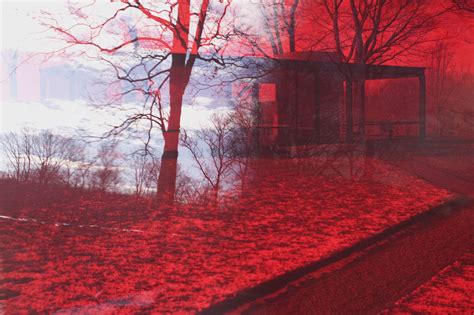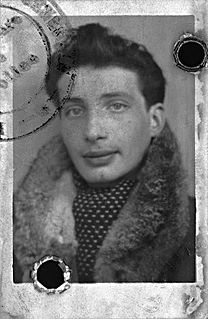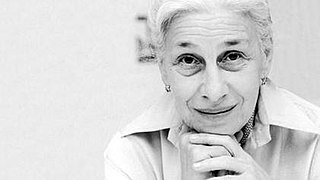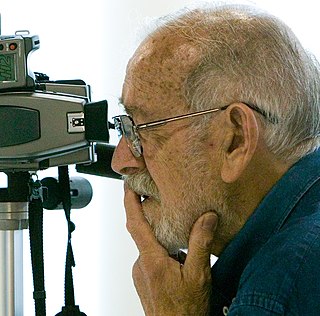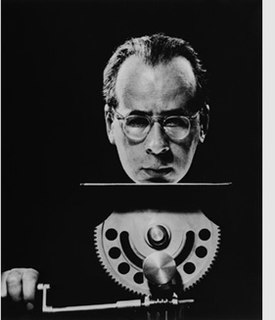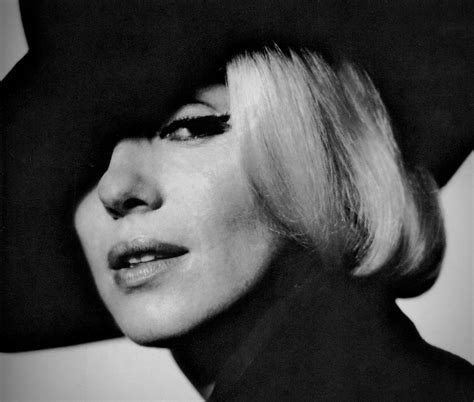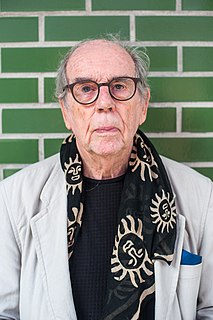A Quote by Neil Gaiman
This is how you can tell a real photographer: mostly, a real photographer does not say 'I wish I had my camera on me right now'. Instead a real photographer pulls out her camera and takes the photograph.
Related Quotes
A photograph records both the thing in front of the camera and the conditions of its making... A photograph is also a document of the state of mind of the photographer. And if you were to extend the idea of the set-up photograph beyond just physically setting up the picture, I would argue that the photographer wills the picture into being.
A photographer is a witness. He has a moral duty. Every picture must be true and honest. I believe a photographer's strength is his ability to accurately record reality. There are photographers who think they are lucky if they find unusual or special subject. But it is never the subject that is so marvelous. It is how alive and real the photographer can make it.
The difference between an amateur and a professional photographer is that the amateur thinks the camera does the work. And they treat the camera with a certain amount of reverence. It is all about the kind of lens you choose, the kind of film stock you use… exactly the sort of perfection of the camera. Whereas, the professional the real professional – treats the camera with unutterable disdain. They pick up the camera and sling it aside. Because they know it’s the eye and the brain that count, not the mechanism that gets between them and the subject that counts.
When I first asked to take pictures of women at their homes, I was using my formal camera and I struggled to get the shots because I was still very much in the role of the photographer. Then the next time I had this little digital camera and their response to me would be completely different - I was a friend and I got new kinds of pictures. I was always treading a line between photographer and friend.
Once a photographer is convinced that the camera can lie and that, strictly speaking, the vast majority of photographs are camera lies, inasmuch as they tell only part of a story or tell it in distorted form, half the battle is won. Once he has conceded that photography is not a naturalistic medium of rendition and that striving for naturalism in a photograph is futile, he can turn his attention to using a camera to make more effective pictures.
My mom had a Canon AE1 camera and I read the manual and that's basically how I became a photographer. I was in the Baltimore punk scene. I knew it was a special time, so I went out and documented that whole era. I was the only person to really do it of my friends in real black and white, beautiful portraits.
I was fooling around one day and looking at Yahoo! Jobs. I typed in "photo" and, of course, what comes up is "One hour photo lab" or "Be a photographer in Disneyland" or jobs that no one really wants as a photographer. I saw, by chance, this ad that said, "Wanted: Photographer for premieres and Hollywood events" and I thought, "This can not be real. This is ridiculous. No one advertizes this!" I was really suspect about it.
Now everyone's main objective of taking photographs is to have a photograph for Twitter or Facebook. I find that troubling. If you have an opportunity to meet the Dalai Lama, don't work out your camera or iPhone issues. Sit and a listen to what the man is saying, because nine times out of 10, you're not going to look at that photo. You're not going to look at the video. As a photographer, I don't carry a camera. I have my iPhone, but I don't carry a camera. I want to live.

